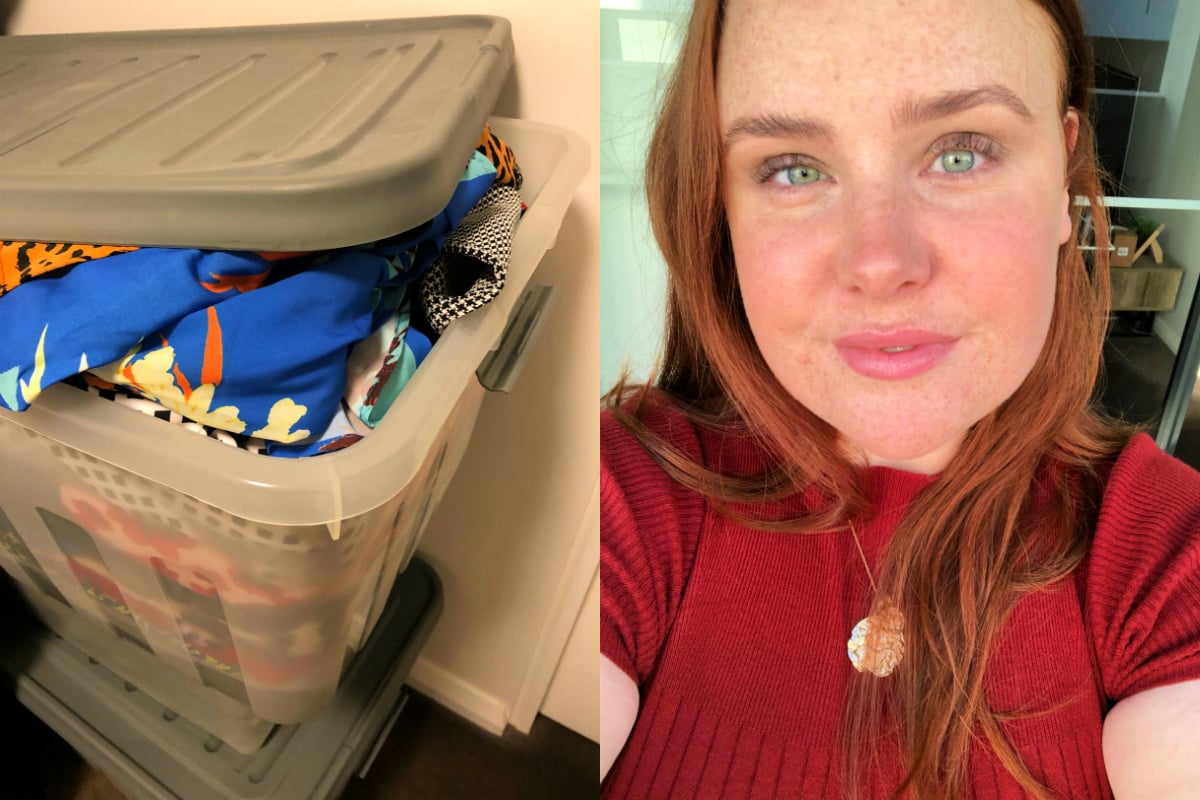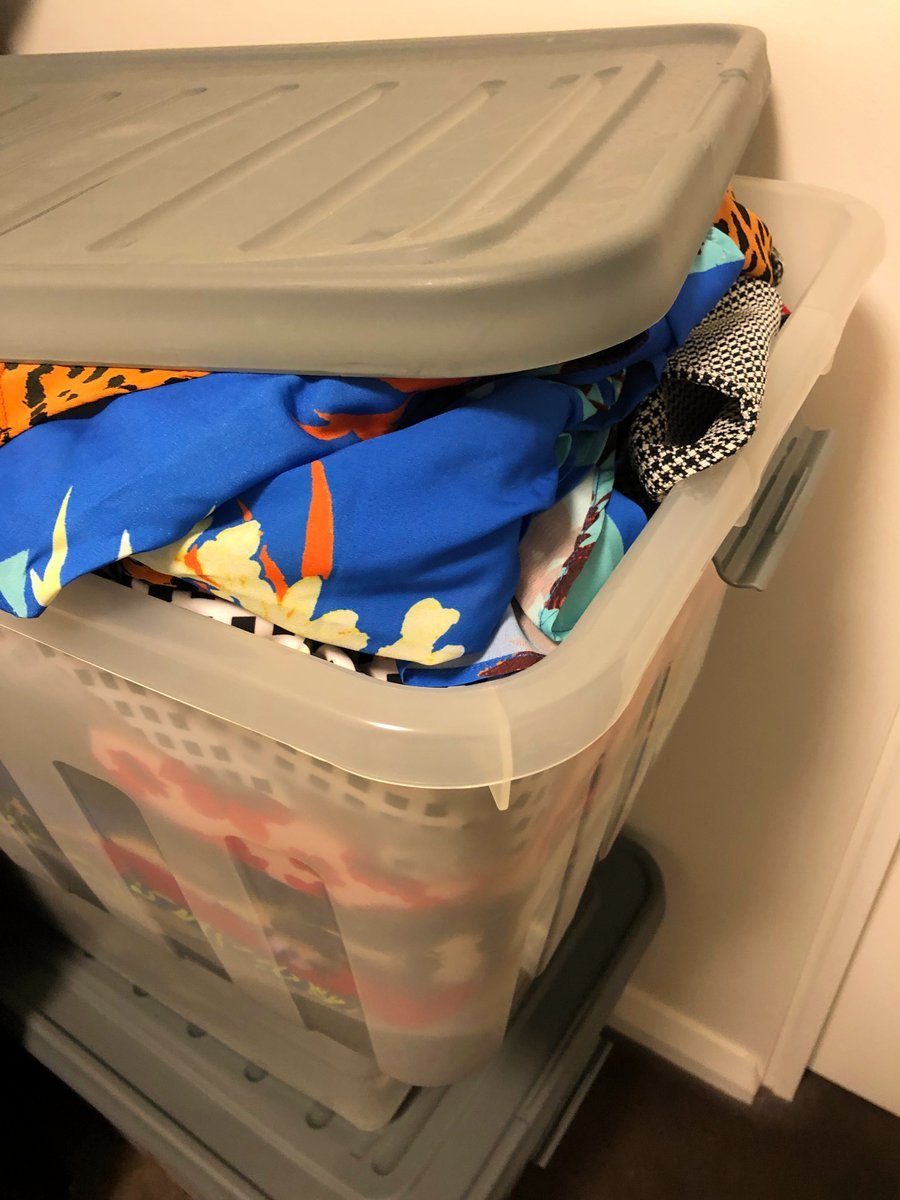
This post deals with themes of body image that might be triggering for some readers.
Yours could be tucked away under your bed or pushed to one end of your wardrobe. They could be squished back behind a pile of shoes. Tucked up high on a shelf you can’t reach. A single dress hung in a dry-cleaning bag.
Mine take up three boxes stacked on top of one another in my spare room. Three boxes full of clothes that don’t fit now, but might ‘one day’.
Before I moved into my current place and had the luxury of a spare room, they hung on my $15 clothes rack. It heaved under the pressure and often toppled over in the middle of the night. Before that, it was under my bed in flat storage containers I’d wheel out and open up whenever I felt like taking a gamble on my self-esteem.
It’s a very privileged problem to have – owning too many clothes – but when none of them fit you, it’s all you see when you get dressed every morning. Not clothes that are too small, but a body that’s too big.
WATCH: I spoke alongside other Aussie women about my relationship with my body in the video below. Oh and I did it in a pair of swimmers. Post continues after video.
Like me, you might’ve been holding onto your too small clothes for years. Or like my mum before me, even decades. Clothes you don’t like anymore are easy to donate or give away. But small clothes? You’ve got to hold onto them just in case. Sure, you won’t be able to wear them anytime soon, but you’d kick yourself if you threw them out because, after all, you’re not going to be the size you are now forever, right?



Top Comments
I keep them - I fit my small
Clothes again now so I now have my fat clothes stored - all my favourites in various sizes because why waste good clothes. I may get bigger again so I have the next few sizes just incase.
In theory, I agree with the premise that you should let go and discard the clothes if they’re too small... BUT for me, they are a motivator to get fit and lose a little bit of weight to return to a pre-baby healthy size. Donating the clothes would be admitting ‘I’m not willing to work on my body to be fit and healthy, and I’m content remaining this way’ which simply isn’t true!
The stingy bargain hunter in me doesn’t want to discard clothes I have handed over my hard earnt cash on knowing that they may fit again and then I would have to waste more money buying more new clothes so yes Amy, I’m with you!